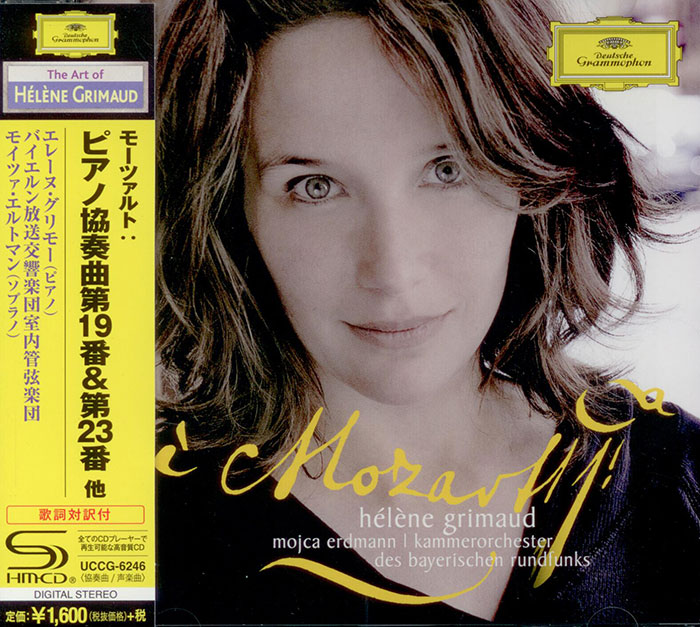Logowanie
Dziś nikt już tak genialnie nie jazzuje!
Bobby Hutcherson, Joe Sample
San Francisco
SHM-CD/SACD - NOWY FORMAT - DŻWIĘK TAK CZYSTY, JAK Z CZASU WIELKIEGO WYBUCHU!
Wayne Shorter, Freddie Hubbard, Herbie Hancock, Ron Carter, Elvin Jones
Speak no evil
UHQCD - dotknij Oryginału - MQA (Master Quality Authenticated)
Chesky! Niezmiennie perfekcyjny
Winylowy niezbędnik
ClearAudio
Double Matrix Professional - Sonic
najbardziej inteligentna i skuteczna pralka do płyt winylowych wszelkiego typu - całkowicie automatyczna
MOZART, Helene Grimaud, Radoslaw Szulc, Kammerorchester des Syymphonieorchesters des Bayerischen Rundfunks
Piano Concertos Nos. 19 & 23 / Ch'io mi scordi di te...
- Helene Grimaud - piano
- Radoslaw Szulc - conductor
- Kammerorchester des Syymphonieorchesters des Bayerischen Rundfunks - orchestra
- MOZART
AllMusic Review by Blair Sanderson [-] Central to Hélène Grimaud's first live album for Deutsche Grammophon is the significance she finds in the slow movement of the Piano Concerto No. 23 in A major, K. 488, of Wolfgang Amadeus Mozart. This movement is a touchstone for her, insofar as she regards it as the most sublime music, "where you find the real Mozart." She has also stated, "Even if this movement were all we had, that would be enough." Because of the emphasis Grimaud places on this poignant Adagio in F sharp minor, listeners may be tempted to cut to the chase and skip the other tracks to hear her interpretation. But to get the full impact and intent of her Mozart, listen from the beginning of this album. The Piano Concerto No. 19 in F major, K. 459, opens the disc, and is followed by the Recitative and Rondo, K. 505, from Idomeneo, performed by guest soprano Mojca Erdmann. Grimaud's playing and conducting of the Bavarian Radio Chamber Orchestra are brisk and boisterous, and her approach is direct and energetic, as fans have experienced in her many recordings of Romantic repertoire. She saves her most expressive playing for the Allegretto of K. 459, which is an amiable diversion, and the above-mentioned Adagio of K. 488, which in Grimaud's hands is a dark and troubling exploration of the soul. Note: the cadenzas in K. 459 are Mozart's, but the first movement cadenza of K. 488 is by Ferruccio Busoni.
 Płyty SHM-CD do odtworzenia we wszystkich typach czytników CD oraz DVD. Gwarantują niespotykaną wcześniej analogową jakość brzmienia, odwzorowują wszystkie walory taśmy-matki. Zdaniem specjalistów - ten nośnik i ta technologia najlepiej - bo natywnie, przenosi na krążek CD wszystkie walory nagrania analogowego. |



































